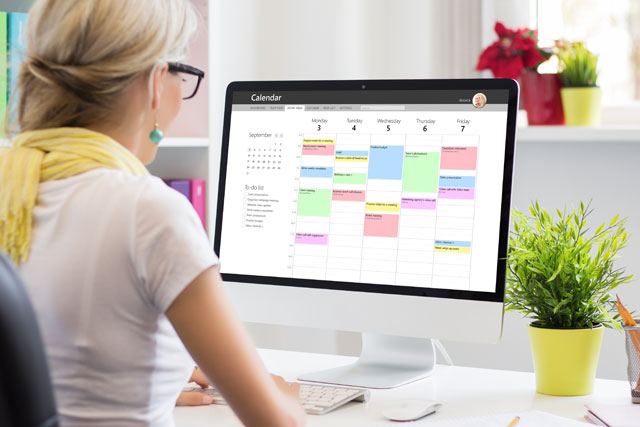A necessary skill for running a business is the proper organization and management of financial matters. Without preparation and planning, you might watch your business fail due to lack of funds or confusion with expenses. Don't let this happen to your new business, but instead take the time to learn what it takes to handle financial matters properly.
Price Setting Process:
One of the first financial decisions you will have to make is how much you will charge your customers for the service you offer. There are many factors that contribute to determining an appropriate cost for each different type of service, and some of these factors include cost of equipment, hours of labor, employee salaries, and size of the job.
Picking the right price can get tricky, because you want it high enough to make a profit, yet low enough to attract customers and keep them. How can you find the realistic middle ground, then?
- Research the Competition - Step one: Know who you're playing against. Research businesses in your local area that are offering similar services, and inquire about their rates. What are the rates of the most popular business in the local market? The current going rate will place a large role in where your prices are set, as you want to stay in the competition. As you are just setting off, you might want to lower your rates to have an edge on the other businesses, but be careful not to let this hurt your financial situation even worse. Knowing what your competitor's charge can help you when speaking to customers, because you can compare and contrast your services and prices to other brands they may have heard of. This helps you seem like you know what you're talking about, and that you have really put thought into offering the best prices.
- How to Set the Cost per Job - As you are just starting off, you may not know yet the best way to provide a quote for a customer. You can either charge by the square foot of the room you are cleaning, which works well for businesses such as floor cleaning and carpet cleaning. Perhaps you may choose to charge by the hour, which generally works for domestic and commercial cleaning jobs. If you do choose to charge by the hour, keep in mind that your clients will expect you to work efficiently and get the most out of each hour that passes. The longer you are there, the more they have to pay, and they may not be pleased if you take a long time to get the job done. As you get more experience and take on larger jobs, you will learn the best ways to estimate costs based on the workload you are taking on.
- Factor In Your Business Plan - In your business plan, you should have a section addressing the profit and loss projection. What are your profit goals? If your current rate is not high enough to help you meet those goals and stay afloat in your business, then cheap prices may be hurting you more than helping you. There's no point in lowering your prices to win customers if you can't stay open long enough to keep them.
Determine the cost for each individual job, from traveling expenses to supply usage. The numbers will vary from client to client, as each job is a different distance to travel and larger rooms may require more supplies. Setting a basic idea of how much it costs, though, can help you determine how much profit you are looking to make on each job. Combine the costs and the profit you wish to make, and you have an estimate price. Depending on the competition's pricing, you may have to adjust this a bit.
- Contract Rates - Keep in mind that not every client you take on will pay per job, but you instead may have monthly or yearly contracts with commercial customers. It is up to you whether you will offer such contracts, or just keep it at a shorter-term payment method. If you do choose to work with long contracts, you might consider offering a cut on prices to entice customers to choose your business. Offering a cut on prices for long-term contracts shouldn't hurt your business financially, as you are getting a steady and consistent income from this client's business. If that's what it takes to get their business, then this could be a wise decision.
- Prepare for Negotiating Clients - Many clients know that you have the ability to shift your price, and are willing to negotiate. If you want their business, sometimes you will have to take them up on their offer or meet them in the middle. If you are determined ahead of time not to negotiate, however, you can let them know that the price is set and you can't change it. Just have an answer prepared and also prep your employees on how to answer if a customer tries to negotiate the price. Set a standard for what the lowest possible price is, and instruct your employees not to negotiate below that price. Sometimes you just have to say no to a client if they are asking for a price that harms your finances more than it helps.
The Process of Keeping Records:
Interested in learning more? Why not take an online Starting Your Own Cleaning Business course?It is necessary that you learn to organize and keep up with customer records, from preferences to payments. Without this skill, you will quickly find the disorganization reflected in your customer relations and day-to-day business operations. Your customers will be able to tell that you don't have a good system when you lose their information and have to request it repeatedly, and this can turn them away from using your business. Maintain a good reputation and keep your customers for the long run by developing strong organizational skills and putting them to use with your new cleaning business.
The first step to keeping up with everything is knowing what to keep? With all the paperwork and documents a small business goes through in a single workweek, how can you know what needs to be saved and filed away?
- Business Documents - Don't lose track of your license and insurance papers, or any government-issued documents you have that establishes your right to continue with your business.
- Receipts - You should keep anything that is a supporting document displaying your income from the business. Credit card statements, invoices, check deposit receipts, and any other document that is related to your income should be saved.
- Evidence of Purchases - With a new cleaning business, you will be spending a lot of money on supplies and equipment. Keep records of all your purchases from manufacturers and suppliers, along with proof of transaction showing that your payment went through. You never know when this information might resurface and be beneficial to you. It is also important to hold on to this information as you write up your yearly budget, so you can see how much you annually spend on supplies and resources.
- Information on Loans or Investments - However you managed to get your start-up funds for your business, you need to hold on to documents and transactions for future reference. If you received an SBA loan, you will need to keep up with paying it off. You also need to keep up with your investor's information in order to keep them updated on business changes about how their money is being used.
- Tax Filings - At this point, you may realize that pretty much any document related to finances should be saved. File away any documents that have to do with business taxes, your employee's taxes, and taxes on purchases you made.
- Health and Safety Documents - Hold on to any documentation regarding health and safety regulations, so that you can use them for future reference.
- Contracts - If you choose to make long-term cleaning contracts with clients, you need an organized way to hold on to these valuable documents. You can't hold the client responsible for keeping up with their copy, but you can be responsible for your own copy. Should anything arise that requires the contract to be pulled out of the files and possibly renewed, you should know where it is and how to access it.
- Business Decisions - This is especially important if you are not the sole owner of the business, as you will need to record agreements and decisions about changes to the business. File any changes you make to the business plan or customer agreements.
If there are any of these documents that you are not legally required to keep but just choose to do so just in case you might need them, figure out the appropriate length of time to hold on to them. If you keep everything from the moment you start your business and on, you may have too many documents to keep up with. Hold on to documents you aren't sure about until you are certain you can operate your business efficiently without calling upon them, and then clean out your files of the unnecessary documents.2 If you are unsure about how long to keep up with important business documents, search online for information about your specific question or contact a professional just to be sure you have valid information! This is something you don't want to get wrong, as it plays such a critical role to the success of your business.
Keeping up with the required business documents will help you stay out of trouble regarding taxes, promote efficient customer service and customer relations, protect your business against potential lawsuits, and assess your business's profitability.
How can you make sure that you are organizing and keeping up with all these documents efficiently? Here are just a few tips:
- Keep it separate from your personal life. Don't make payments for the business on your personal credit card, and don't use the business credit card for personal expenses. At the beginning, it may seem easy to pay yourself back with either, but in the long run it just gets confusing, especially when you're trying to keep up with expenses and records. Save yourself the trouble and keep the two entirely separate. This will help with professionalism as well, by keeping customer relations separate from your personal life. If necessary, look into getting a business phone rather than using your personal phone to make customer calls. You can get a cheap deal on a phone plan that suits your needs for the business.
- Give yourself time to work on records. Don't just expect yourself to find the time if you don't purposefully set aside the time in your schedule. It doesn't take much time out of your schedule if you make it a weekly routine to sort and organize records and documents. Keeping up with a weekly scheduling will also help you stay in tune with the ins and outs of your business and how things are looking financially. You can see firsthand any progress or decline that your business's finances have taken, and keep up to date with current customers or contracts. You will be able to spot potential trouble areas before they have the opportunity to present an issue for your business.
- Check for financial holes and inconsistencies. A sloppy job of following through on invoices and payments can lead to you not being paid, and you may not even realize it if you don't follow through. If you take the time each week to look over customer payments and make sure that all is in order, then you should be able to catch any instances where a customer didn't turn in their invoice or something along those lines. Checking up on your financial situation on a weekly basis can keep you from overspending during times of financial stress, and help you to put money to good use when your business is doing well.
- Call in a professional as needed. If you're new to the business world and aren't quite sure where to begin on your own, it would be more beneficial to pay a little extra for an expert than to hurt your business with poor record-keeping skills. Lack of expertise in this area can lead to loss of income, tax issues, and even lawsuit issues that could have been prevented. Over time, you should get a hang of the system and may no longer need to call in a professional, or you may still choose to do so for peace of mind and confirmation.
Billing Process:
Talk with your customers about their preferred method of billing, as it could vary from client to client. If you prefer to set a standard billing process, then you can let them know up front with your policies. Some residential cleaning services, for instance, have their customers pay with a check at the time of the cleaning. Others might send a bill in the mail or over email after the cleaning is finished. With residential clients, you are best served by letting them pay in the manner that they are accustomed to, should that be credit card, cash, or check. Just make sure that their payment is legitimate and consistent, especially since the billing process is typically done after your services have already been provided.
For residential customers, you will have some clients who have a routine cleaning schedule, and others who only hire you on an occasional basis. You need to develop a system for each, which includes setting up a routine billing schedule for the client with a routine billing. You will find the same situation with commercial clients, in which they hire you to clean on a routine basis. You can set up an email invoice to go out on the occasion of each cleaning, just make sure to remember to cancel the invoice if they cancel the cleaning.
Once you begin a routine contract with a client, you may get into the habit of relying on your billing system to send out the invoice, and you won't even have to do it manually. Just be careful of getting too comfortable with automated billing systems, because you may not be as perceptive if the customer misses a payment. This makes record keeping critical in order to ensure that you are paid!






























